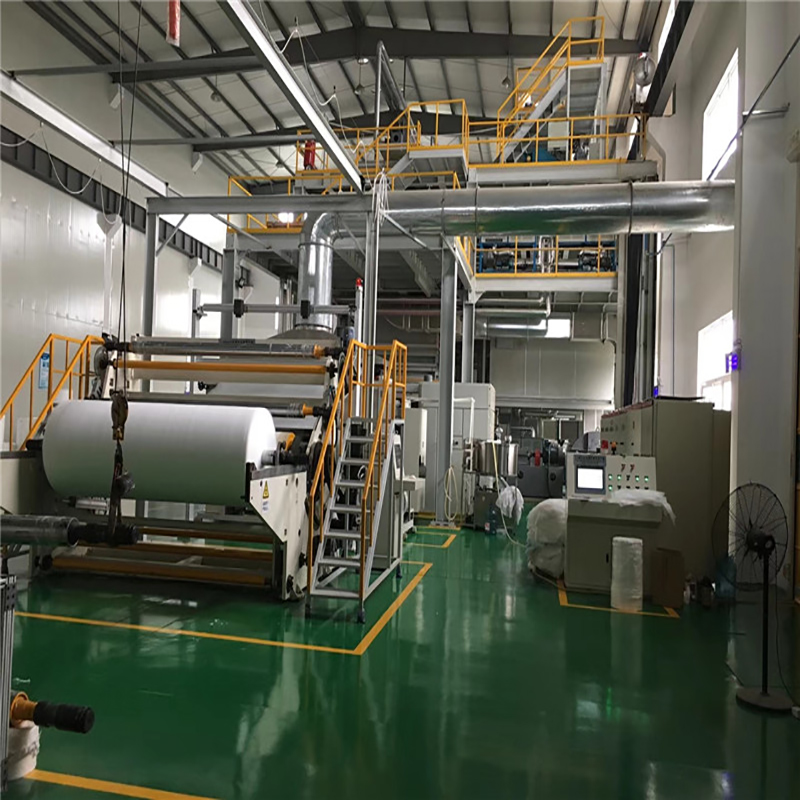Meltblown machine nonwoven fabric represents a paradigm shift in textile technology, offering unparalleled versatility, performance, and sustainability in the production of nonwoven materials. Explore the features and applications of meltblown nonwoven fabrics, and unlock the endless possibilities they offer in diverse industries and sectors.

Introducing Meltblown Machine Nonwoven Fabric
Meltblown machine nonwoven fabric is a revolutionary textile material produced through a specialized manufacturing process known as melt blowing. This innovative technique involves extruding molten polymer resins through high-velocity air streams, creating ultra-fine fibers that are then collected onto a conveyor belt to form a web-like structure. The result is a nonwoven fabric with exceptional softness, strength, and filtration efficiency, making it a versatile and high-performance material for a wide range of applications.
Nonwoven Fabrics Produced by Melt Blown Fabric Machine
Nonwoven fabrics produced by melt blown fabric machines exhibit a myriad of unique characteristics that set them apart from traditional woven textiles. Some key attributes of meltblown machine nonwoven fabric include:
- Fine Filtration: Meltblown nonwoven fabrics feature ultra-fine fibers with diameters in the micrometer range, resulting in a dense and uniform structure that offers superior filtration capabilities. These fabrics are commonly used in air and liquid filtration applications, including face masks, industrial filters, and medical textiles, where fine particle retention and breathability are essential.
- Softness and Comfort: Despite their fine fiber diameter, meltblown nonwoven fabrics are remarkably soft and gentle to the touch, making them ideal for applications that require skin contact or sensitive surfaces. The inherent flexibility and drapability of these fabrics enhance comfort and wearability, making them suitable for a wide range of consumer and healthcare products.
- High Tensile Strength: Meltblown nonwoven fabrics exhibit exceptional tensile strength and tear resistance, ensuring durability and longevity in demanding environments. These fabrics can withstand mechanical stress, abrasion, and repeated use without compromising their structural integrity, making them ideal for applications that require robust and reliable materials.
The Features of Melt Blown Fabric Machine
- Precision Extrusion: Melt blown fabric machines are equipped with precision extrusion systems that control the flow rate, temperature, and pressure of molten polymers during the fiber formation process. This ensures consistent fiber quality and uniformity, resulting in nonwoven fabrics with precise characteristics and performance properties.
- Efficient Air Handling: Melt blown fabric machines utilize high-velocity air streams to attenuate and collect the extruded fibers, creating a uniform and homogenous web structure. The efficient air handling system ensures optimal fiber distribution and bonding, enhancing the strength and filtration efficiency of the produced nonwoven fabrics.
- Versatile Configuration: Melt blown fabric machines are designed with modular components that allow for flexible configuration and customization based on specific production requirements. From adjustable die heads to variable conveyor speeds, these machines offer versatility and adaptability to produce a wide range of nonwoven fabric types with varying properties and applications.
The Applications of Melt Blown Fabric Machine
- Medical Textiles: Meltblown nonwoven fabrics are widely used in the production of medical textiles such as surgical masks, vestidos, and wound dressings. The exceptional filtration efficiency and breathability of these fabrics make them essential components in healthcare settings, providing protection against airborne pathogens and contaminants.
- Produtos de Higiene: Meltblown nonwoven fabrics are key materials in the manufacturing of hygiene products such as diapers, feminine hygiene products, and wet wipes. The softness, absorbency, and fluid management capabilities of these fabrics enhance the performance and comfort of hygiene products, ensuring optimal user experience and product effectiveness.
- Industrial Applications: Meltblown nonwoven fabrics are employed in a variety of industrial applications, including filtration media, insulation materials, and protective clothing. The high strength, chemical resistance, and thermal stability of these fabrics make them suitable for challenging industrial environments that require durable and reliable materials for critical applications.
